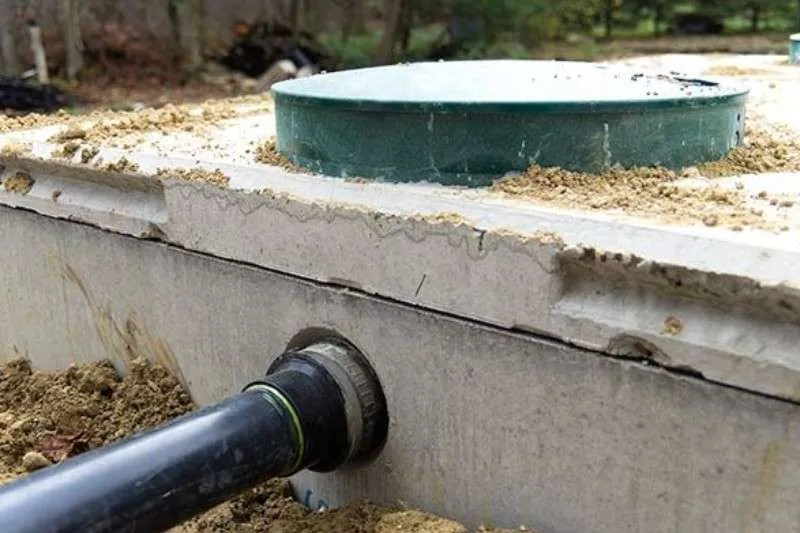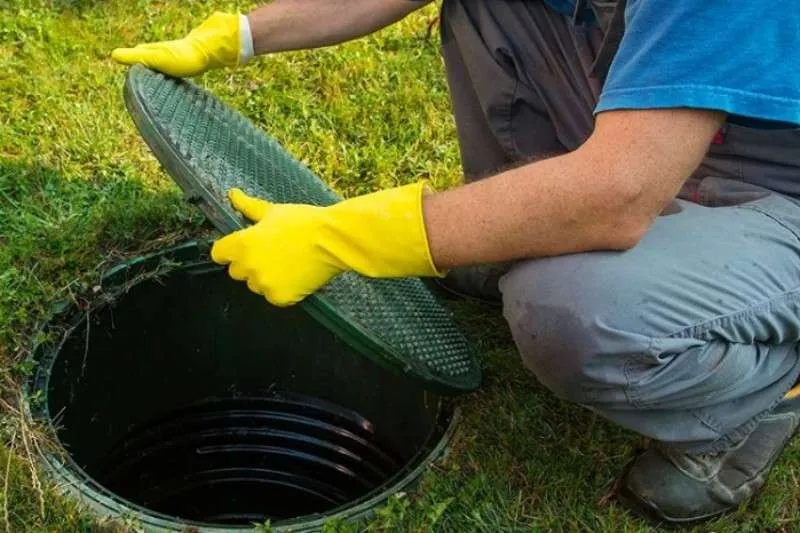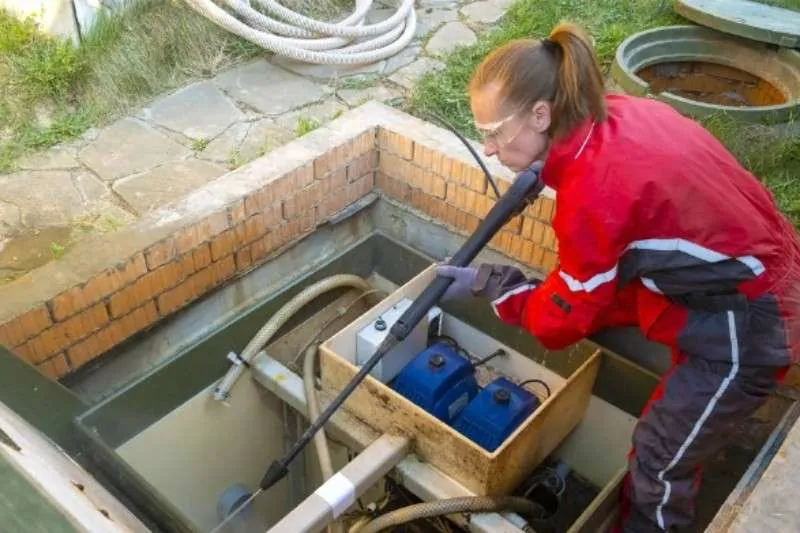Maintaining your septic system with the best additives and treatments available is essential to have it running properly. With so many different products on the market, how can you determine which is right for you? Knowing key factors such as the type of tank, specific water issues, and overall clarity can help break down what could seem like an overwhelming number of choices.
In this blog post, we’ll explore some of the most popular septic tank additives and treatments to give you insight into making an informed decision about maintaining your septic system.
Introduction to septic tank additives and treatments
Septic tanks are essential components of a wastewater disposal system. If a septic system is not properly maintained, it can become clogged with sludge and solids, leading to an unhealthy environment and costly maintenance bills. Septic tank additives or treatments help prevent the formation of sludge and solids in the tank, minimize odors, and enhance the septic waste system’s overall performance.
The purpose of septic tank additives or treatments is to increase the efficiency of a septic tank, reduce the buildup of sludge and solids, improve water quality, and eliminate unpleasant odors. Additives break down solid waste material so it can be flushed out more easily. This preventative measure can save homeowners from costly repairs in the future.
Various septic tank additives and liquid treatments are available on the market. Some popular options include bacteria-based products, enzymes, oxygen concentrators, and chlorine-based agents. Bacteria-based products contain probiotics or beneficial microbes that digest organic waste material in the septic tank treatment enzymes. Enzymes are proteins that help speed up the breakdown of waste material. Oxygen concentrators and chlorine-based agents both help to reduce odors in the tank.
Not all septic tank additives and treatments are created equal, so thoroughly researching products before purchasing is important. Be sure to compare various brands and choose a product specifically designed for septic systems.
Bacterial Additives and How bacterial additives work in septic systems
Bacterial additives are septic tank additives used as a proactive maintenance measure to keep your septic or household waste well system running smoothly. These products contain beneficial bacteria that break down organic material, such as waste and oils, which can accumulate in your septic tank or drain field over time. The bacteria also help to produce enzymes that aid in the digestion of organic material and reduce odors.
These bacterial additives keep your septic system at its peak performance by breaking down waste, oils, and other materials that may make foul-smelling septic systems or accumulate in the septic tank or drain field. The bacteria populate the system, digesting organic matter and inorganic acids and producing enzymes that help break down solids. This helps break down solid waste, optimize the system’s performance, and reduce odors.
Pros and cons of using bacterial additives

The pros of using a bacterial additive include reducing odor levels, breaking down organic material in your septic tank walls or drain field, and helping to keep your septic system functioning optimally. The cons include potential compatibility issues with existing systems, difficulty choosing the right product, and expense.
Bacterial additives are an effective way to keep your septic system running smoothly. They help break down organic material, reduce odors, and optimize the functioning of your septic system. However, it is important to ensure you choose the right product for your septic system treatment and follow the manufacturer’s instructions when using a bacterial additive.
The Role of Enzymes in septic tank maintenance
Enzyme treatments can help to reduce the build-up of sludge and scum in septic tanks, which can cause clogging and back-ups. Enzymes are naturally occurring molecules that break down organic matter, like proteins and lipids, into small pieces. This helps to increase the decomposition rate, reducing the need for manual pumping or other maintenance. Enzyme treatments can also reduce odors and prevent harmful bacteria from growing in the tank.
The role of enzymes in septic tank maintenance is to help active bacteria break down solid material that enters the tank, such as soaps, oils, grease, food particles, and toilet paper. As these materials accumulate on the bottom of the tank, they can form a thick sludge layer. The enzymes help to break down this material, making it easier for the bacteria within the tank to digest. This process helps to reduce the amount of solid waste in the tank and keep it flowing freely.
The advantages of enzyme treatments include: they are easy to use, cost-effective, non-toxic, and biodegradable. Additionally, they can help extend the life of your septic system by reducing maintenance needs. The disadvantages of enzyme treatments include that they must be replenished occasionally and may not work as effectively in cold temperatures.
Chemical Additives and How chemical additives function in septic systems
Chemical additives are among the most popular and widely used septic tank additives and treatments. These chemical products contain bacteria, enzymes, harsh chemo,cals, surfactants, and nutrients that help break down solids in a septic system. They can also help prevent problems with septic-specific enzymes, such as clogging, bad odors, slow drainage, and overflowing caused by an accumulation of waste and sludge.
When properly used to prevent septic backups, chemical additives can help to break down organic matter and keep the tank from overflowing. This helps maintain a healthy system by improving water flow through the septic system. The bacteria in these products also help reduce odor-causing bacteria and blockages caused by sludge accumulation.
However, it is important to note the potential risks of using chemical additives in septic tanks. Overuse of these products can result in the formation of toxic gases like hydrogen sulfide, which can cause health problems for those living or working near the septic tank odors. Additionally, if the chemical additives are not used correctly or applied too often, they can disrupt the natural balance of the septic tank treatment well’s microbial environment. This could result in an overgrowth of bacteria, which can lead to a host of other issues.
The debate surrounding septic tank additives
When it comes to septic tank treatment, there is a great deal of debate surrounding the use of additives. Many believe these products can help keep their tanks functioning properly and reduce blockages and clogging, while others are skeptical about their effectiveness. To help you decide whether or not to use them, it is important to consider the pros and cons of using natural septic tank treatment and additives.
On the positive side, many experts agree that certain types of additives can be beneficial for keeping septic tanks functioning properly. The most common type of additive is bacteria, which helps break down solids in the tank before they cause clogging or other problems. Other additives can also be beneficial, such as enzymes that help break down solid waste and prevent clogging.
On the negative side, however, some experts caution against septic tank additives as they can harm the environment. The bacteria in the additives are not always beneficial for the ecosystem and could lead to an imbalance of good bacteria. Some additives can be expensive, making them an impractical choice for expensive septic backups for many homeowners.
Choosing the right septic tank additive for your needs

Adding an additive or treatment can be beneficial when it comes to maintaining a healthy septic system. But with so many available options, choosing the right one for your needs cannot be easy. There are several factors to consider when selecting an additive or septic treatment, such as its ingredients and effectiveness, cost-effectiveness, ease of use, and environmental impact. In this article, we’ll discuss the top-rated septic tank additives and treatments to help you make an informed decision.
When selecting a septic tank additive or treatment, the first thing to consider is its ingredients. It’s important to look for products that contain natural bacteria and enzymes that can effectively break down solids in the septic tank, clear out, and restore balance to the system. Additionally, you’ll want to look for ingredients like iron sulfide and sodium nitrate that can help prevent bad odors from developing.
FAQs
Do septic tank additives work?
When used correctly and in moderation, septic tank additives can help keep your system functioning properly by breaking down solids and preventing clogging.
How often should I use septic tank additives or treatments?
It is recommended to use septic tank additives or treatments every three months or more often if needed. Be sure to follow the instructions provided by the manufacturer for the best results.
Can using additives replace the need for regular septic tank pumping?
Regular septic tank pumping is still necessary, even if you use additives or treatments. Pumping helps remove solid waste from the septic tank backups and prevents septic backups.
Are there any potential risks or side effects of using septic tank additives?
Yes, septic tank additives can have potential risks or side effects. If biological additives are not used correctly or applied too often, they can disrupt the natural balance of the tank’s microbial environment and lead to an overgrowth of bacteria.
How do I choose the best septic tank additive for my system?
When selecting a septic tank additive or monthly septic tank treatment amount, it is important to consider its ingredients and effectiveness, cost-effectiveness, ease of use, and environmental impact. Ultimately, you’ll want to choose an additive tailored to your best septic tank treatment or system’s needs.
Can I use multiple additives or treatments in my septic tank?
Yes, you can use multiple additives or treatments in your septic tank. However, it is important to follow the instructions provided by the manufacturer for each product and ensure they do not conflict.
Are there any natural or DIY alternatives to commercial septic tank additives?
Yes, some natural or DIY alternatives to commercial septic tank additives exist. For example, you can use baking soda and vinegar mixed with warm water to help prevent clogs in the septic pipes.
What is the cost of septic tank additives, and are they worth the investment?
The cost of septic tank additives can vary depending on the type and quantity you need. Generally speaking, they are more expensive than traditional septic tank treatments but are often worth the investment due to their long-term benefits.
Conclusion
With the variety of septic tank additives and treatments available, choosing the best option for you when preventive septic tank maintenance can be overwhelming. Hopefully, this blog has provided some insight into the pros and cons of each option and given you a better understanding of making an informed decision about maintaining your septic tank system. Ultimately, you will want to decide on an additive or treatment regimen that will make the best septic tank treatments work against sludge buildup and build-up bacteria levels so that your septic tank continues to operate at peak efficiency and minimize odor.


